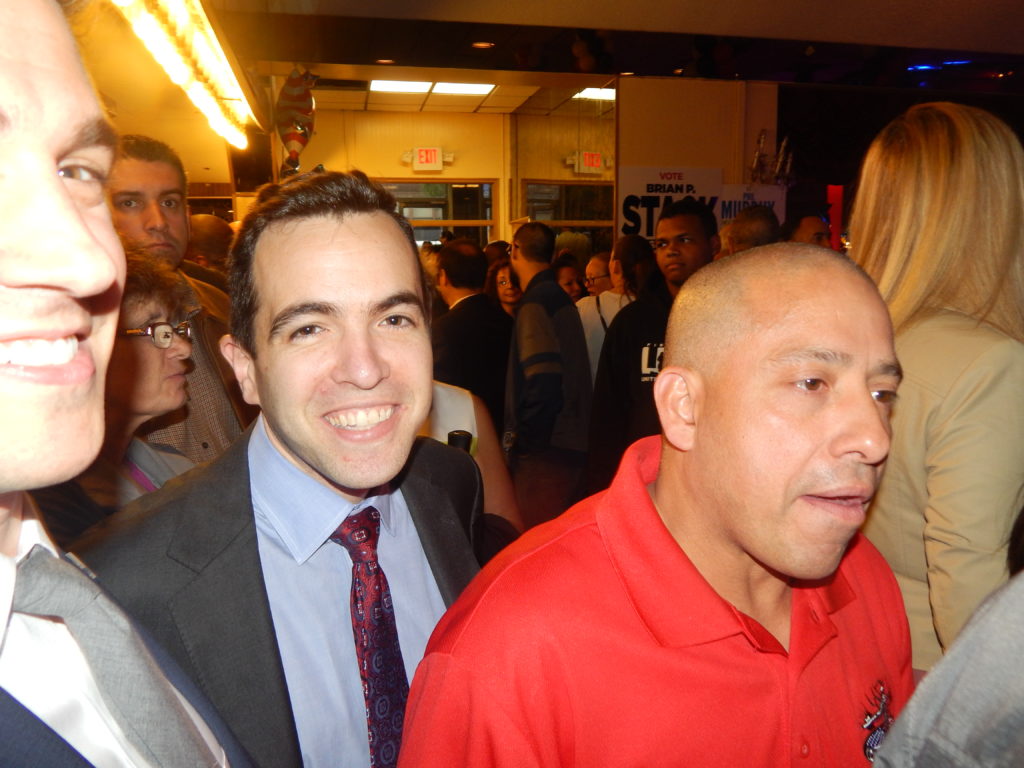
Attorney General Matthew J. Platkin today announced he is leading a challenge to President Donald Trump’s executive order ending birthright citizenship, which violates the constitutional rights to which all children born in the United States are entitled, according to a press release issued by the AG’s Office.
“President Trump’s attempt to unilaterally end birthright citizenship is a flagrant violation of our Constitution,” said Attorney General Platkin. “For more than 150 years, our country has followed the same basic rule: babies who are born in this country are American citizens. New Jersey is a proud state of immigrants, and we benefit tremendously from the contributions of birthright citizens—in our state and across the country. State Attorneys General have been preparing for illegal actions like this one, and today’s immediate lawsuit sends a clear message to the Trump Administration that we will stand up for our residents and their basic constitutional rights.”
“The Constitution could not be more clear: citizenship of children born in the United States does not depend on the citizenship of their parents. That principle is fundamental to who we are as a nation and what it means to be an American,” said Governor Phil Murphy. “Yesterday’s announcement about birthright citizenship flouts the Constitution and will needlessly harm families who are lawfully present in the United States until it is inevitably overturned by the courts. We will not waver in our efforts to protect the rights of all who call New Jersey home.”
“The Trump administration’s proposal to deny children born in this country citizenship is not only cruel, it goes against our very foundation as Americans,” said Human Services Commissioner Sarah Adelman. “Here in New Jersey, we take pride in our diversity and understand the role immigration has played in shaping our country. We will not let this go without a fight, and I am proud to stand with Governor Murphy and Attorney General Platkin to defend the rights of all Americans.”
President Trump issued an executive order Monday fulfilling his repeated promise to end birthright citizenship, in violation of the Fourteenth Amendment of the United States Constitution and Section 1401 of the Immigration and Nationality Act.
To stop the President’s unlawful action, which violates the Constitution and will harm hundreds of thousands of American children, 18 states, the District of Columbia and one city are suing in the District of Massachusetts to invalidate the executive order and to enjoin any actions taken to implement it. The states request immediate relief to prevent the President’s Order from taking effect through both a Temporary Restraining Order and a Preliminary Injunction.
As the Attorney General’s filing today explains, birthright citizenship dates back centuries—including to pre-Civil War America. Although the Supreme Court’s notorious decision in Dred Scott denied birthright citizenship to the descendants of slaves, the post-Civil War United States adopted the Fourteenth Amendment to protect citizenship for children born in the country. As the Attorney General’s filing also explains, the U.S. Supreme Court has twice upheld birthright citizenship, regardless of the immigration status of the baby’s parents.
If allowed to stand, this Order—for the first time since the Fourteenth Amendment was adopted in 1868—would mean thousands of babies born each year in New Jersey who otherwise would have been citizens will no longer enjoy the privileges and benefits of citizenship.
The children who are stripped of their United States citizenship lose their most basic rights, and will be forced to live under the threat of deportation. They will lose eligibility for a wide range of federal services and programs. They will lose their ability obtain a Social Security number and, as they age, to work lawfully. And they will lose their right to vote, serve on juries, and run for certain offices. Despite the Constitution’s guarantee of citizenship, thousands of children will—for the first time—lose their ability to fully and fairly be a part of American society as a citizen with all its benefits and privileges.
In addition to harming hundreds of thousands of residents, the States’ filing explains that today’s order significantly harms the States themselves too. Among other things, this Order will cause the States to lose federal funding to programs that they administer, such as Medicaid, the Children’s Health Insurance Program, and foster care and adoption assistance programs, which all turn at least in part on the immigration status of the resident being served. States will also be required—on no notice and at their considerable expense—to immediately begin modifying their operation and administration of benefits programs to account for this change, which will impose significant burdens on multiple agencies that operate programs for the benefit of the States’ residents. The States’ filing explains that they should not have to bear these dramatic costs while their case proceeds because the Order is directly inconsistent with the Constitution, the Immigration and Nationality Act, and two U.S. Supreme Court decisions.
In New Jersey, this matter is being handled by Solicitor General Jeremy Feigenbaum, Deputy Solicitor General Shankar Duraiswamy, and Deputy Attorneys General Viviana Hanley, Shefali Saxena, and Elizabeth Walsh.
States joining Attorney General Platkin in today’s filing include California, Massachusetts, Colorado, Connecticut, Delaware, Hawaii, Maine, Maryland, Michigan, Minnesota, Nevada, New Mexico, New York, North Carolina, Rhode Island, Vermont, and Wisconsin, as well as the District of Columbia and the City of San Francisco.
Platkin’s Challenge to Unconstitutional Trump Executive Order Ending Birthright Citizenship: A Detailed Look at the Complaint
In a bold move that has sparked controversy and debate, attorney and former New Jersey State Treasurer, Elizabeth Maher Muoio, along with other legal experts, have filed a lawsuit challenging President Trump’s recent executive order aimed at ending birthright citizenship. The complaint, filed in federal court, argues that the executive order is unconstitutional and violates the Fourteenth Amendment of the United States Constitution.
The Fourteenth Amendment, ratified in 1868, grants citizenship to all persons born or naturalized in the United States, regardless of their parents’ immigration status. This principle of birthright citizenship has been a cornerstone of American law for over 150 years, ensuring that all individuals born on U.S. soil are considered citizens of the country.
President Trump’s executive order seeks to overturn this long-standing legal precedent by denying citizenship to children born in the United States to non-citizen parents. The order has been met with widespread criticism from legal scholars, civil rights advocates, and politicians on both sides of the aisle.
The complaint filed by Muoio and her colleagues argues that the executive order is unconstitutional because it directly contradicts the language and intent of the Fourteenth Amendment. The amendment was specifically designed to ensure that all individuals born in the United States are granted citizenship, regardless of their parents’ immigration status.
Furthermore, the complaint argues that the executive order violates the Equal Protection Clause of the Fourteenth Amendment, which prohibits the government from discriminating against individuals based on their national origin or immigration status. By targeting children born to non-citizen parents, the executive order unfairly singles out a specific group of individuals for unequal treatment under the law.
Muoio and her colleagues are seeking an injunction to block the implementation of the executive order and to declare it unconstitutional. They argue that allowing the order to stand would set a dangerous precedent and undermine the fundamental principles of equality and justice enshrined in the Constitution.
The outcome of this legal challenge could have far-reaching implications for the future of immigration policy in the United States. As the debate over birthright citizenship continues to unfold, it is clear that this issue is far from settled and will likely be a topic of heated debate for years to come.

